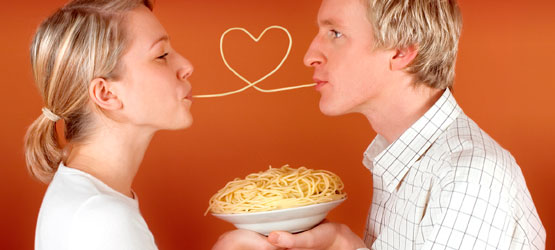One of the most interesting themes, in my opinion, emerging from the current research into young people’s consumption of energy drinks, is the way that different messages about energy drinks – who (supposedly) consumes them and how – circulate and often deliver contradictory images and information. Not only are young people targeted by a range of clever advertising strategies from the companies that produce and sell these drinks, but they also receive information from teachers, parents, public health practitioners, media outlets (including social media) and their peers. Adults also receive information from similar sources.
By way of example, many people are aware that lots of energy drinks contain Taurine. Some people, no doubt helped by internet search engines, social media and classroom rumours, also believe that the taurine that is in energy drinks is extracted from bull sperm. This info lies firmly in the realm of ‘urban myth’, although you can perhaps understand where it originated from, given that taurine was first isolated from ox bile and it is present in bull sperm. It can also be found in fish and meat, and in breast milk, although we’ve yet to come across any young people who believe there is industrial scale maternal ‘pumping’ going on in an effort to give the population wings. Somewhat predictably, the taurine in energy drinks in synthetically produced in labs.
Urban myths, although they contain a degree of plausibility, are relatively easy to disprove due to a lack of robust evidence. But there are other types of myths which are sometimes harder to disprove, despite similarly lacking credible evidence bases. Christopher G. Flood (2002) identified ‘political myths’ as coherent narratives which orient discourses in the one ideological direction rather than another. He argued that political myths:
can be said to exist when accounts of a more or less common sequence of events, involving more or less the same principal actors, subject to more or less the same overall interpretation and implied meaning, circulate within a social group.
Contemporary political myths include there being ‘no alternative’ to austerity, the need to crackdown on ‘skivers’ who are ‘welfare dependent’ and the dangers posed by migrants acting as ‘benefits tourists’ or ‘health tourists’. The idea of a group of ‘poor parents’ (in both senses of the phrase) representing a major public health risk to their children as a result of problematic parenting behaviours is, I would argue, another such political myth. These parents are often marked out as being different from ‘us’ by virtue of their residence in ‘deprived’ areas and by their ‘inferior’ parenting practices. In Flood’s words, therefore, the same principal actors are subject to more or less the same overall interpretation and implied meanings.
During the course of our research, we have encountered a small number of stories about parents blending a MacDonald’s ‘Happy Meal’ or a ‘Sunday dinner’ and putting it in baby’s bottles or parents filling milk bottles with energy drinks or other inappropriate drinks/liquids. Previous experience within the research team suggests that similar stories will probably be familiar to many people working in public health and/or nutrition.
Views about ‘poor parents’ have a long and undistinguished history, stretching back to at least Victorian times when there was concern about a ‘social residuum’ (see John Welshman’s fascinating book Underclass for a comprehensive history). Public health practitioners also have a long history of involvement with these ideas and the roles of Chief Medical Officers in propagating ideas about a ‘social problem group’ in the 1930s and ‘problem families’ in the 1950s are particularly sobering, given that they were influenced and supported by The Eugenics Society. Despite over a century of social scientific research, there is no credible evidence of a large number of families with different cultural values or behavioural norms from ‘the rest of us’.
As noted above, many of these ideas originate from politicians, who are keen to differentiate between ‘skivers’ and ‘strivers’ or ‘troubled’ and ‘hard-working’ families and who would have us believe that there is an ‘underclass’ whose parenting deficiencies are ruining the lives of their children. Unfortunately, some public health practitioners do little more than repeat and embellish these political myths, giving them more credibility and potency than they perhaps deserve.
I am not denying that there may well be a parent - or maybe even parents - who have blended a Happy Meal or given their child an Energy Drink. What I do doubt is whether the potential, but as yet unfounded, actions of an extremely small number of parents is worthy of repetition from some - though not all - public health practitioners on the scale that we sometimes see. Shouldn’t we be setting the bar a little higher than second or third-hand anecdotes in terms of ‘evidence-based’ practice and policy making? Not believing, or at least questioning, some of things we read on the internet or that we are told by politicians and, in some cases, colleagues, would be a good place to start. Failure to challenge such stereotypes leaves the way clear for the wider political myth that, in the words of Stanley Cohen (1985), ‘the deprived are not much different from the depraved’.
Cohen, S. (1985) Visions of Social Control, Cambridge: Polity
Flood, C.G. (2002) Political Myth, Abingdon: Routledge
Welshman, J. (2013) Underclass: A history of the excluded since 1880, London: Bloomsbury
Did you enjoy reading this post? If so, please vote for Fuse in the UK Blog Awards 2016 by clicking here




